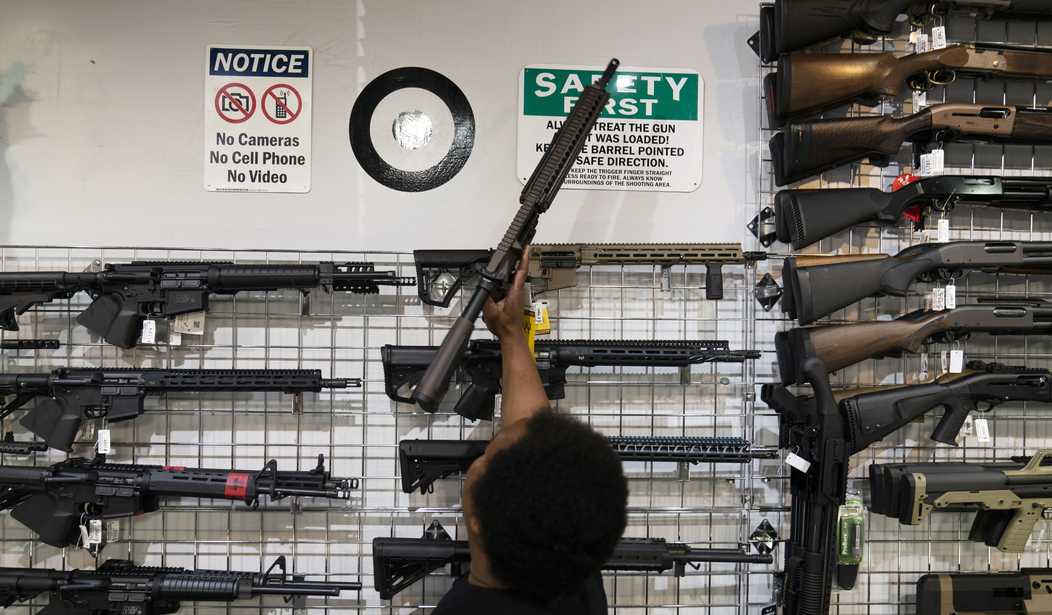Earlier this year Delaware Gov. John Carney signed HB 450 into law; a bill that bans the sale, manufacture, transport, import, transfer, and lawful use of many semi-automatic firearms arbitrarily designated as “assault weapons.”
In order to lawfully maintain possession of those modern sporting rifles purchased before June 20th of this year, Delaware gun owners are supposed to apply for a “voluntary certificate of possession”; basically a backdoor gun registration scheme. Those who obtain a certificate are “allowed” to maintain possession of their rifle, but are limited to keeping it at their home (or another private property where they have permission to take the gun), shooting ranges, and any “exhibition, display, or educational project that is about firearms and that is sponsored by, conducted under the auspices of, or approved by a law-enforcement agency or a nationally or state recognized entity that fosters proficiency in, or promotes education about, firearms.”
In a new lawsuit filed in federal court by the Firearms Policy Coalition and the Second Amendment Foundation on behalf of two Delaware residents and a New Castle, Delaware gun shop Wednesday, attorneys argue that the provisions in HB 450 are fundamentally and flagrantly violating the constitutional rights of citizens.
The plain text of the Second Amendment covers the conduct the Plaintiffs wish to engage in (“keep and bear arms”) and the arms they wish to keep and bear because “the Second Amendment extends, prima facie, to all instruments that constitute bearable arms.” And “[w]hen the Second Amendment’s plain text covers an individual’s conduct, the Constitution presumptively protects that conduct. To justify its regulation, the government . . . must demonstrate that the regulation is consistent with this Nation’s tradition of firearm regulation.”
Heller has already established the relevant contours of the tradition: Bearable arms that are presumptively protected by the Second Amendment cannot be banned unless they are both dangerous and unusual. But arms that are in common use—such as those banned by Delaware— cannot be both dangerous and unusual. And to be sure, the Second Amendment’s “reference to ‘arms’ does not apply ‘only [to] those arms in existence in the 18th century.’ ”
“Just as the First Amendment protects modern forms of communications, and the Fourth Amendment applies to modern forms of search, the Second Amendment extends, prima facie, to all instruments that constitute bearable arms, even those that were not in existence at the time of the founding.”
…
In this case, the analysis is straightforward: The Plaintiffs may not be prohibited from exercising their right to keep and bear arms. The Second Amendment’s text covers the conduct the Plaintiffs wish to engage in and the arms they wish to acquire and possess. The arms the Plaintiffs wish to acquire and possess are not dangerous and unusual today. Moreover, there is no analogous history supportive of Delaware’s Ban. Thus, under the Supreme Court’s precedents, the constitutionally relevant history, and the proper analysis, Plaintiffs must prevail.
As SAF executive director Adam Kraut noted, “one week after the Supreme Court handed down its landmark Bruen decision in June, Delaware Gov. John Carney signed House Bill 450, which we believe is clearly unconstitutional. Yet this new statute categorically bans the protected conduct of possessing, self-manufacturing, transporting, importing, selling, transferring, purchasing, receiving and lawfully using constitutionally protected arms that are in common use across the nation.”
Bill Sack, the FPC’s director of legal operations, calling the filing another notch in the organization’s “ aggressive national litigation campaign targeting those states that elect to implement immoral and arbitrary restrictions on bearable arms,” adding that “despite their apparent belief otherwise, Delaware lawmakers are not exempt from the demands of the Constitution.”
Sack is right, but I don’t think the Delaware Democrats who enshrined HB 450 into law are all that worried about treading on the rights of residents. They’re framing the new gun ban as a public safety issue, and when their ban is overturned they’ll complain about the courts stepping on their ability to “protect the public” instead of acknowledging their unconstitutional gun grab.
Here’s hoping they have a lot to disagree with when the federal judiciary gets ahold of their latest gun control law. The types of restrictions on commonly-sold rifles, pistols, and shotguns put in place in Delaware have no historical analogue and certainly don’t comport with the plain text or tradition of the right to keep and bear arms, and this shouldn’t be a difficult case for judges to decide in favor of the Delaware gun owners who have no intention of giving up their rifles or their right to keep and bear them.








Join the conversation as a VIP Member